第26章
One lady of my acquaintance is a Poor Law Guardian and secretary to a labour bureau.But then she runs a house with two servants, four children, and a husband, and appears to be so used to bothers that she would feel herself lost without them.You can do this kind of work apparently even when you are bothered with a home.It is the skirt-dancing and the poker work that cannot brook rivalry.The modern woman has begun to find children a nuisance; they interfere with her development.The mere man, who has written his poems, painted his pictures, composed his melodies, fashioned his philosophies, in the midst of life's troubles and bothers, grows nervous thinking what this new woman must be whose mind is so tremendous that the whole world must be shut up, so to speak, sent to do its business out of her sight and hearing, lest her attention should be distracted.
An optimistic friend of mine tells me not to worry myself; tells me that it is going to come out all right in the end.Woman just now, he contends, is passing through her college period.The school life of strict surveillance is for ever done with.She is now the young Freshwoman.The bothering lessons are over, the bothering schoolmaster she has said good-bye to.She has her latchkey and is "on her own." There are still some bothering rules about being in at twelve o'clock, and so many attendances each term at chapel.She is indignant.This interferes with her idea that life is to be one long orgie of self-indulgence, of pleasure.The college period will pass--is passing.Woman will go out into the world, take her place there, discover that bothers were not left behind in the old schoolhouse, will learn that life has duties, responsibilities, will take up her burden side by side with man, will accomplish her destiny.
[Is there anything left for her to learn?]
Meanwhile, however, she is having a good time--some people think too good a time.She wants the best of both.She demands the joys of independence together with freedom from all work--slavery she calls it.The servants are not to be allowed to bother her, the children are not to be allowed to bother her, her husband is not to be allowed to bother her.She is to be free to lead the higher life.My dear lady, we all want to lead the higher life.I don't want to write these articles.I want somebody else to bother about my rates and taxes, my children's boots, while I sit in an easy-chair and dream about the wonderful books I am going to write, if only a stupid public would let me.Tommy Smith of Brixton feels that he was intended for higher things.He does not want to be wasting his time in an office from nine to six adding up figures.His proper place in life is that of Prime Minister or Field Marshal: he feels it.Do you think the man has no yearning for higher things? Do you think we like the office, the shop, the factory? We ought to be writing poetry, painting pictures, the whole world admiring us.You seem to imagine your man goes off every morning to a sort of City picnic, has eight hours' fun--which he calls work--and then comes home to annoy you with chatter about dinner.
It is the old fable reversed; man said woman had nothing to do all day but to enjoy herself.Making a potato pie! What sort of work was that? Making a potato pie was a lark; anybody could make a potato pie.
So the woman said, "Try it," and took the man's spade and went out into the field, and left him at home to make that pie.